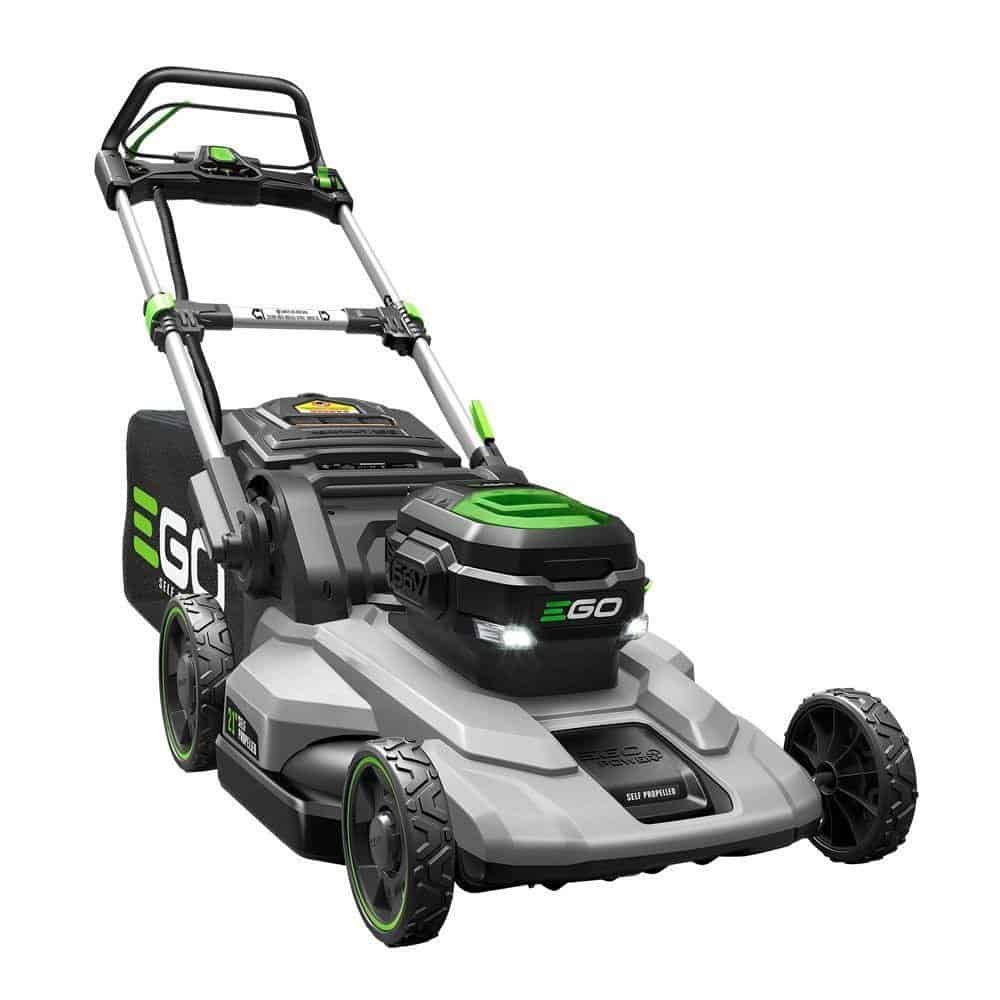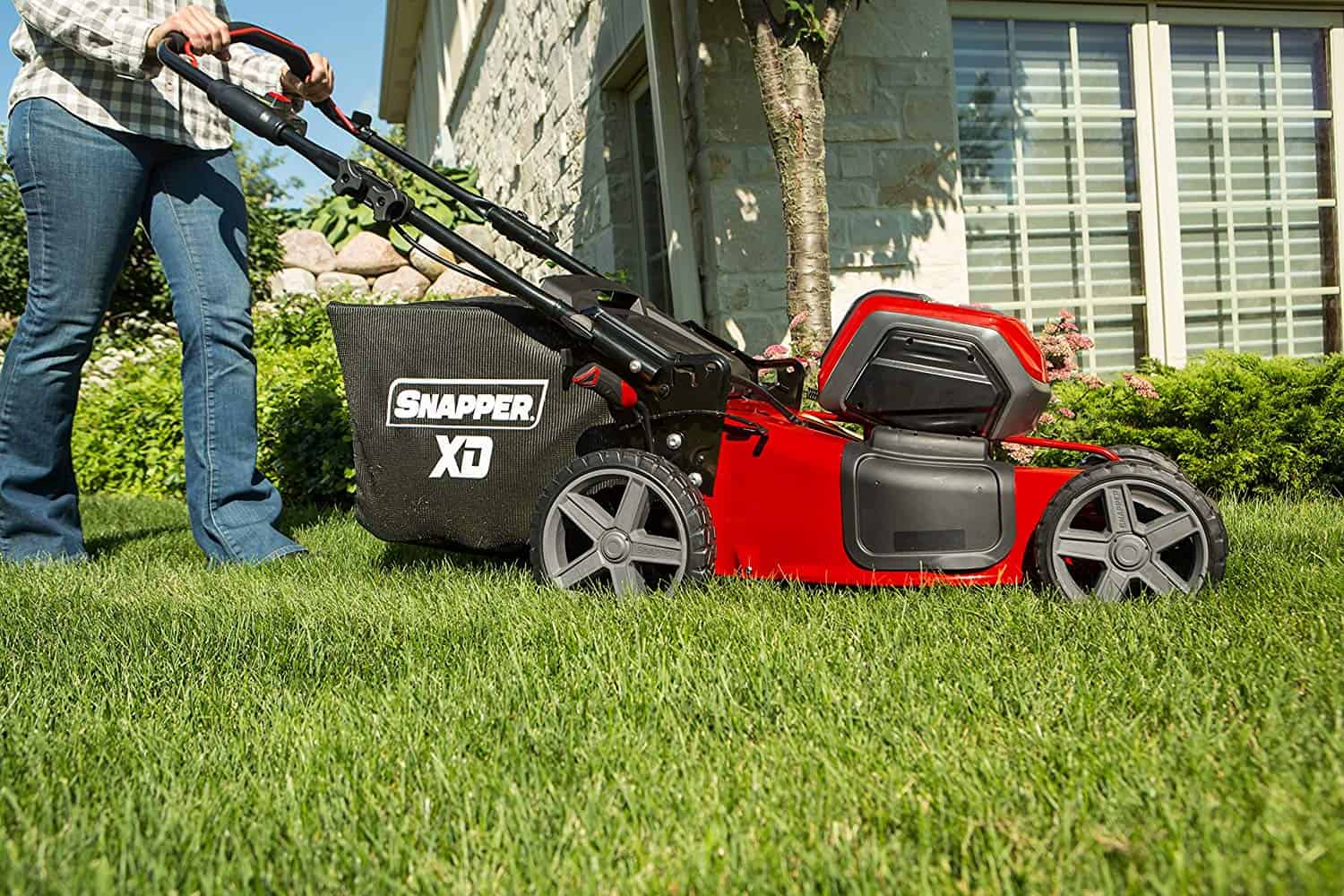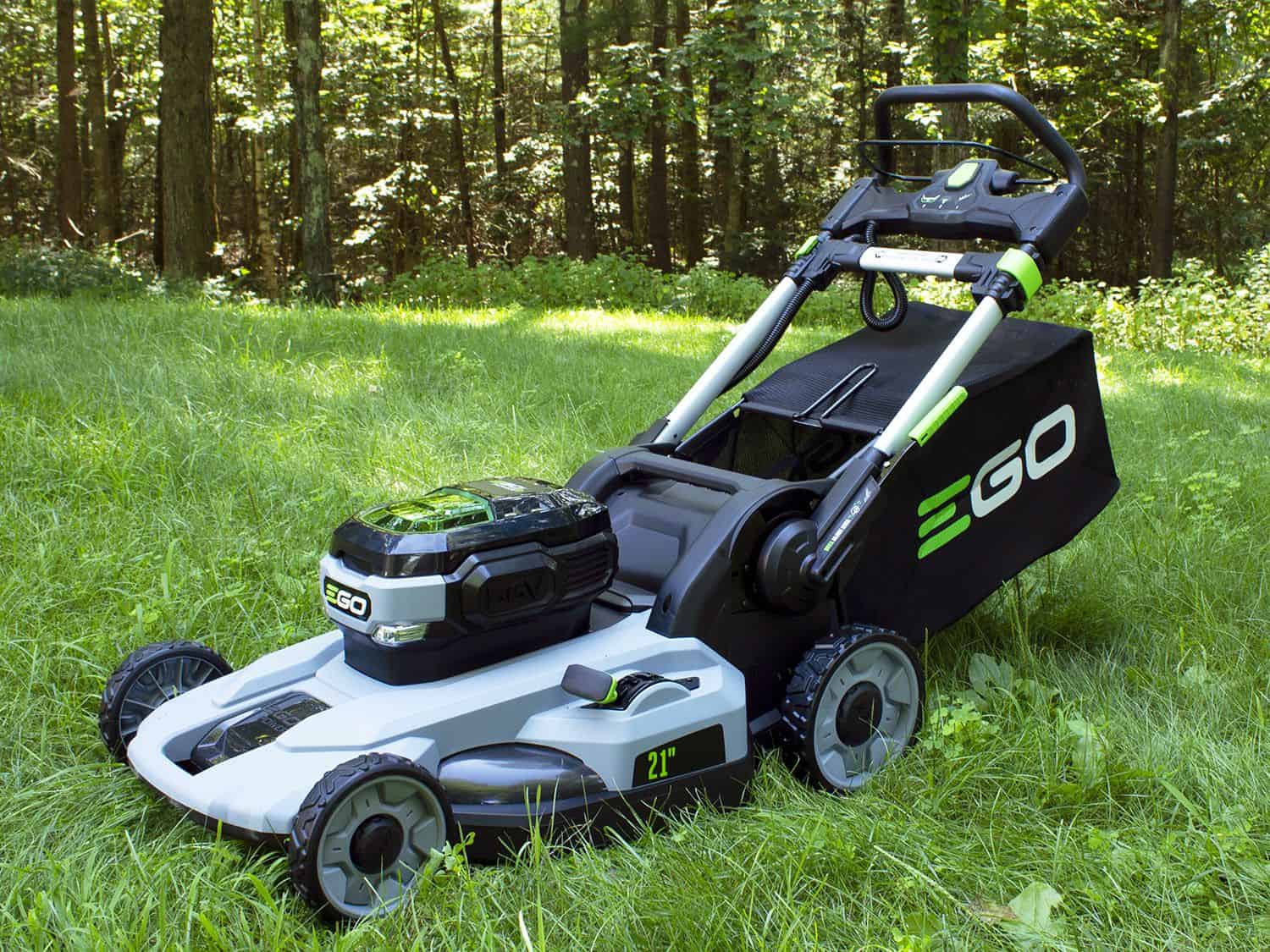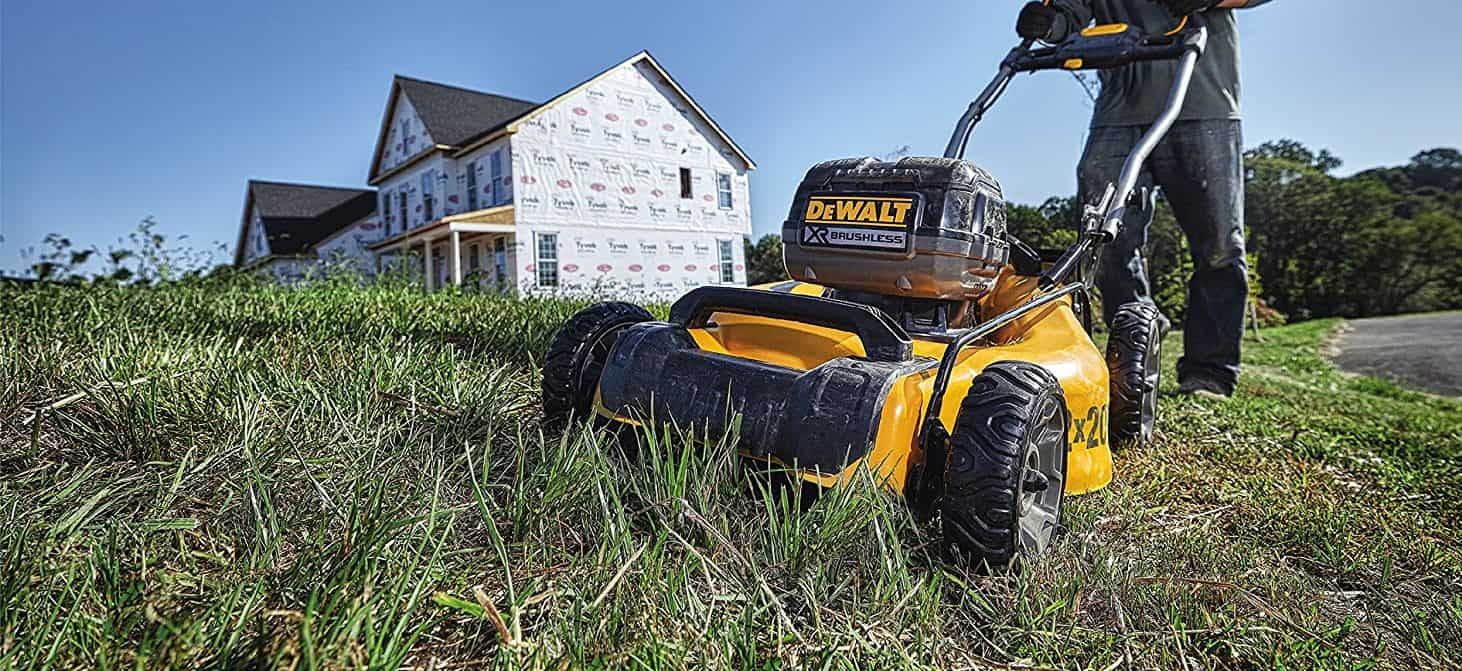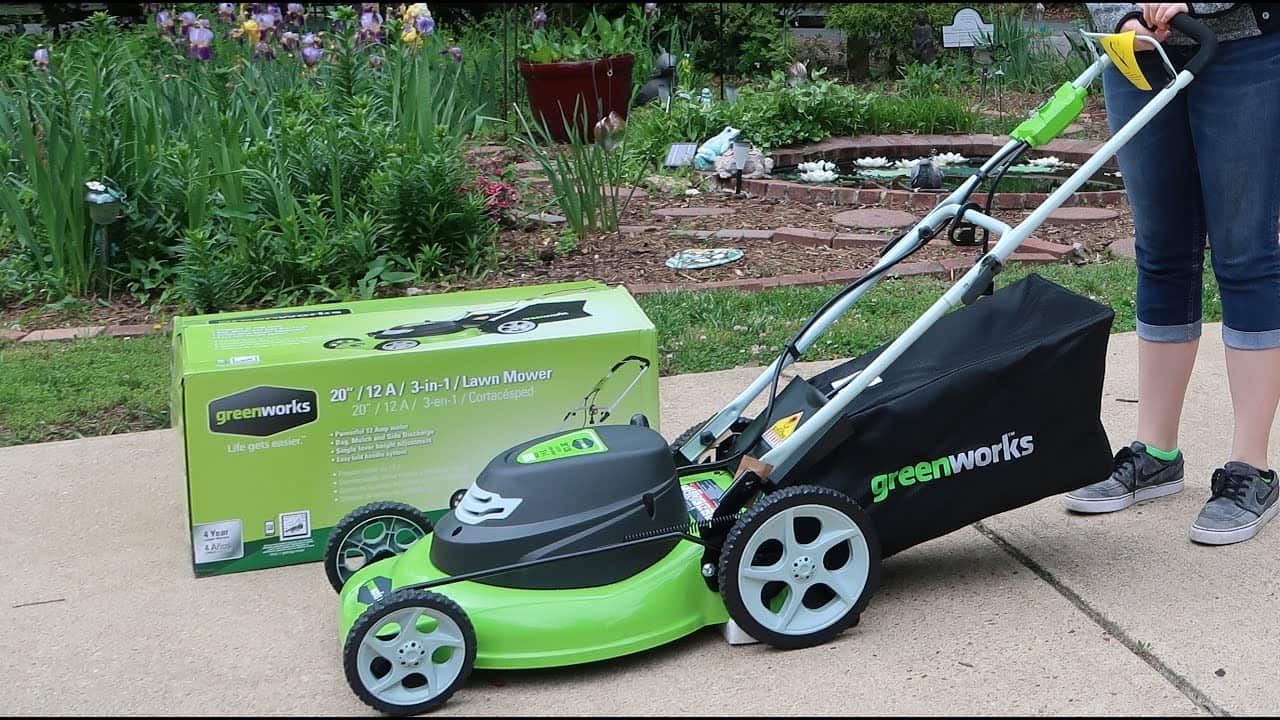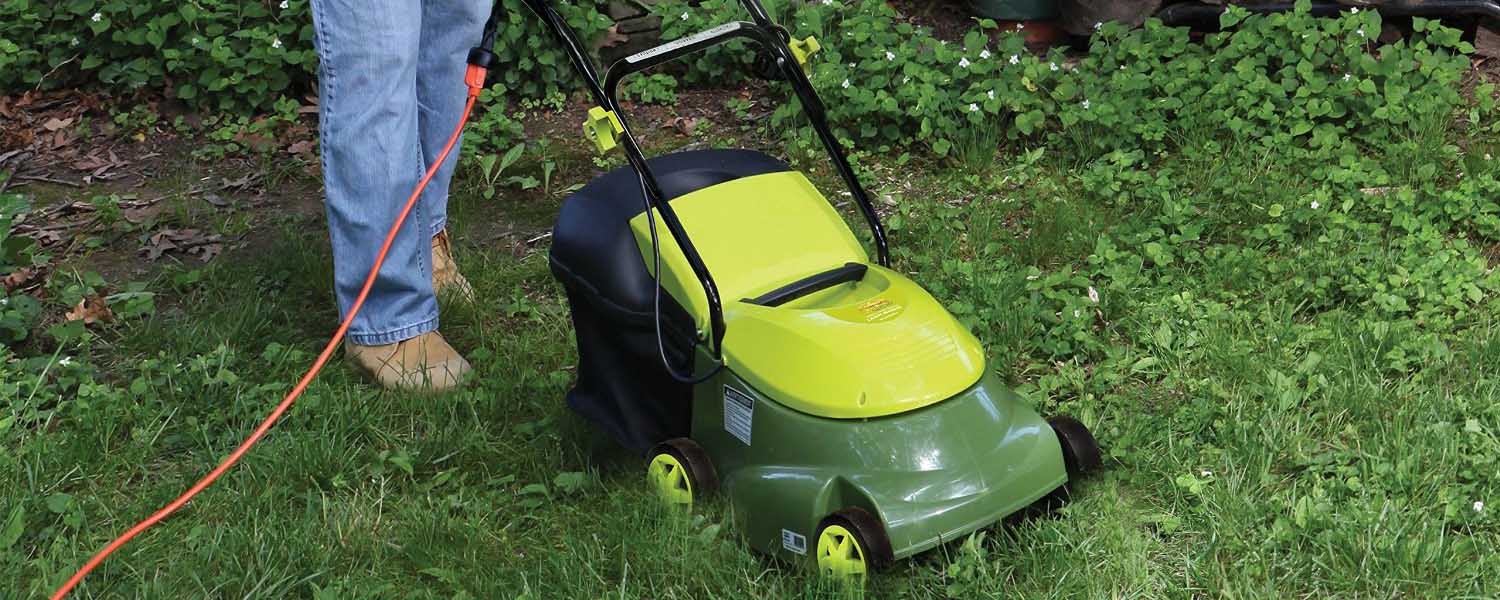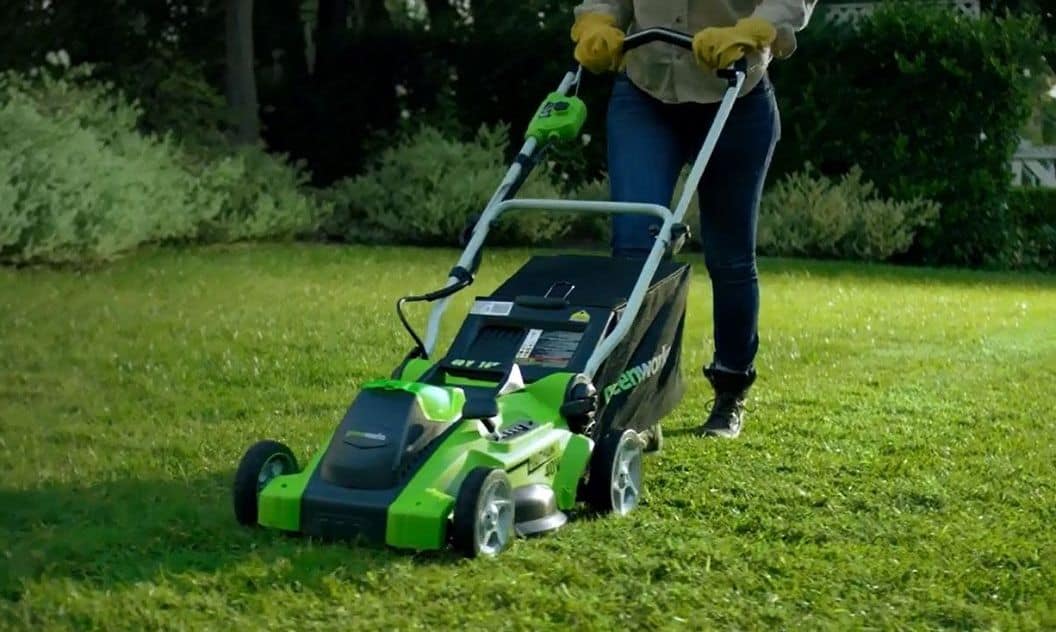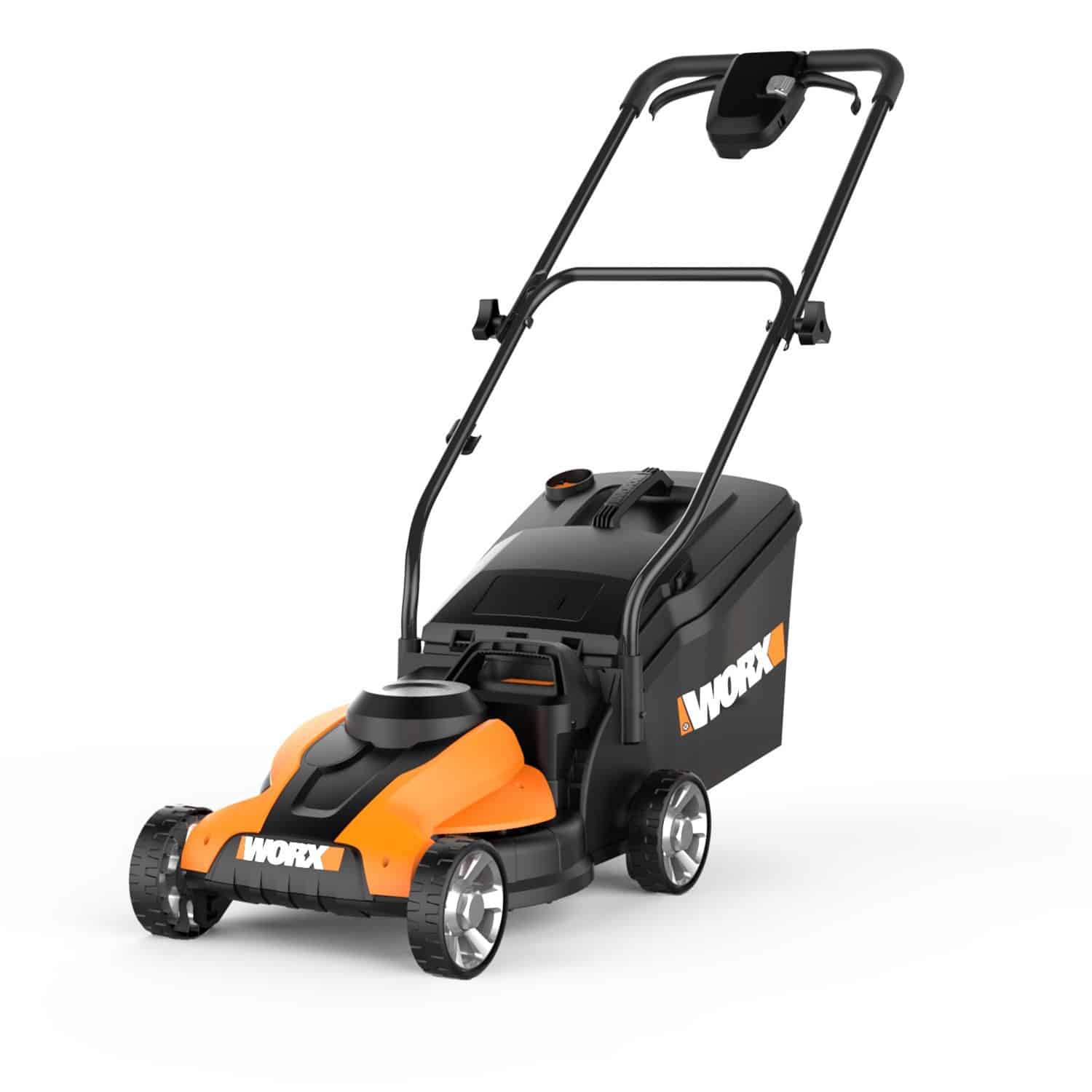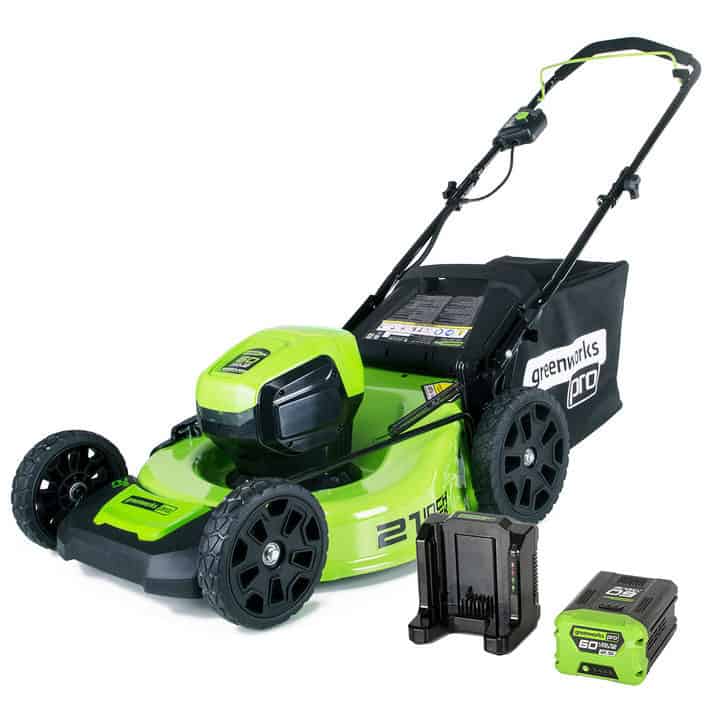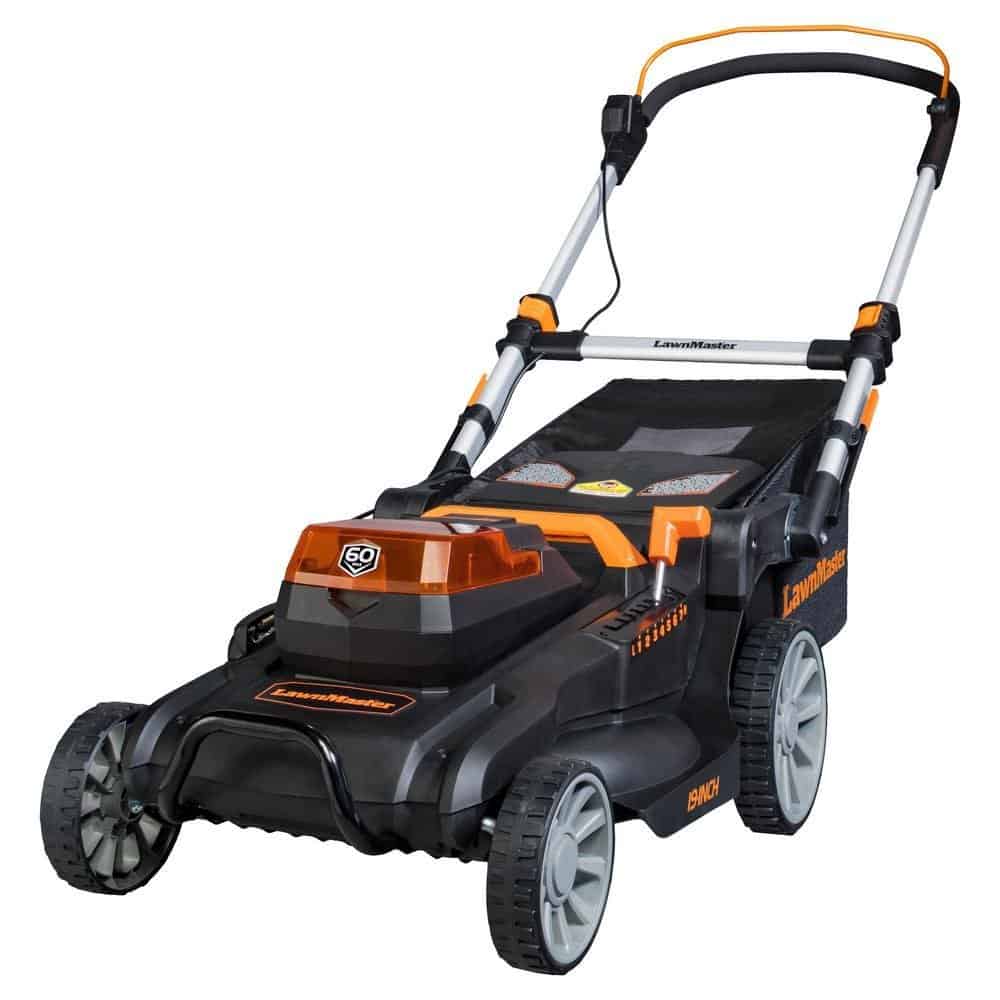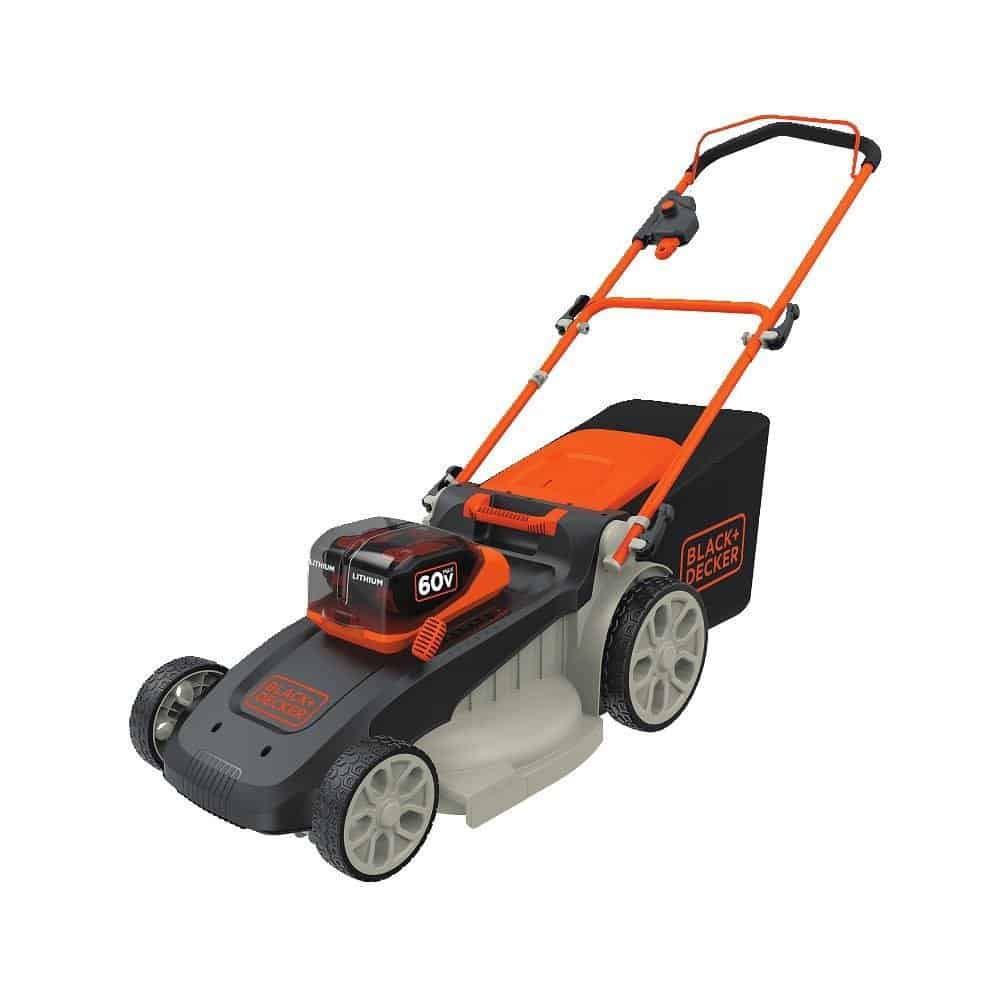There’s a lot to consider when buying the best electric lawn mower.
Today’s lawn owners have two choices when it comes to keeping a tidy lawn: go the traditional gas route, or just pick the best electric lawn mower. So hence the inevitable debate: electric vs gas lawn mower.
Electric mowers work on the same principles as gas mower, but their motors are operated using different, cleaner methods. This does indeed give them an environmental advantage – no pollutants, after all – but there are many other pros and cons to consider.
To help out, we’re breaking down the differences between gas and electric mowers based on the features that matter most to you.
Here’s what you need to know to make up your mind!
#1 Power Source (Gas vs Electric): Where Their Cutting Power Comes From
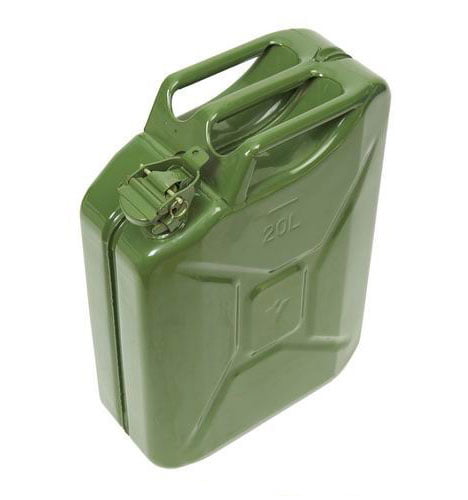
Gas-powered motors have a gas tank and an oil reservoir that they use to power a traditional gas engine. You always need the right type of gasoline on hand to refill the tank when necessary, and gas does go bad if you keep it for months without use, so you may need to replace old gas over time. As we mentioned, the combustion also produces exhaust, which isn’t pleasant.
Electric lawn mowers, on the other hand, use batteries that you charge by connecting them to typical garage outlets. Yes, there used to be corded lawn mowers that actually ran a cord from the outlet to the mower itself, but these are increasingly rare and will likely vanish within a few years, for obvious reasons (mower blades and electrical cords don’t mix).
The battery is a simple source of power, but it does need its own maintenance: large batteries need to be charged regularly even when not in use, and extreme temperatures can affect battery performance, especially over time.
#2 Lawn Size: Gas Can Cover More Distance
A gas-powered lawn mower will run as long as you keep putting the right gasoline in it, making it ideal for small to mid-sized lawns (for particularly large lawns well over one acre, you may want to consider getting a riding lawnmower). Gas lawnmowers are also a bit more likely to be self-propelled, which can make mowing large spaces much easier.
Today’s electric mowers run for about an hour on a full battery charge, before the battery starts winding down and you need to wrap up. How much lawn can you mow in an hour? Typically, this is sufficient for most small and mid-sized lawns.
Keep in mind some electric mowers allow you to switch to an additional battery to improve run time, which could be an option if your lawn is larger than normal, but not huge.
A final important consideration is performance over time. A gas mower will perform more or less the same over time with the proper maintenance – the same amount of force will be applied, the motor will turn at reliably the same speed.
Electric mowers, however, depend on battery life, and the motor can be particularly sensitive to electrical power. As the battery starts to drain, the motor can slow down when it comes in contact with particular thick grass. This makes it harder to “power through” thick or tall grass with an electric model.
#3 Noise: Electric Is Much Quieter
Noise is really no contest: Even with efficient engines, gas lawnmowers are loud, and sometimes that’s an issue when you’re in the middle of a neighborhood (or if you hate wearing earplugs/headphones).
Electric mowers, in comparison, are much quieter.
#4 Operation and Maintenance: Electric Is Easier
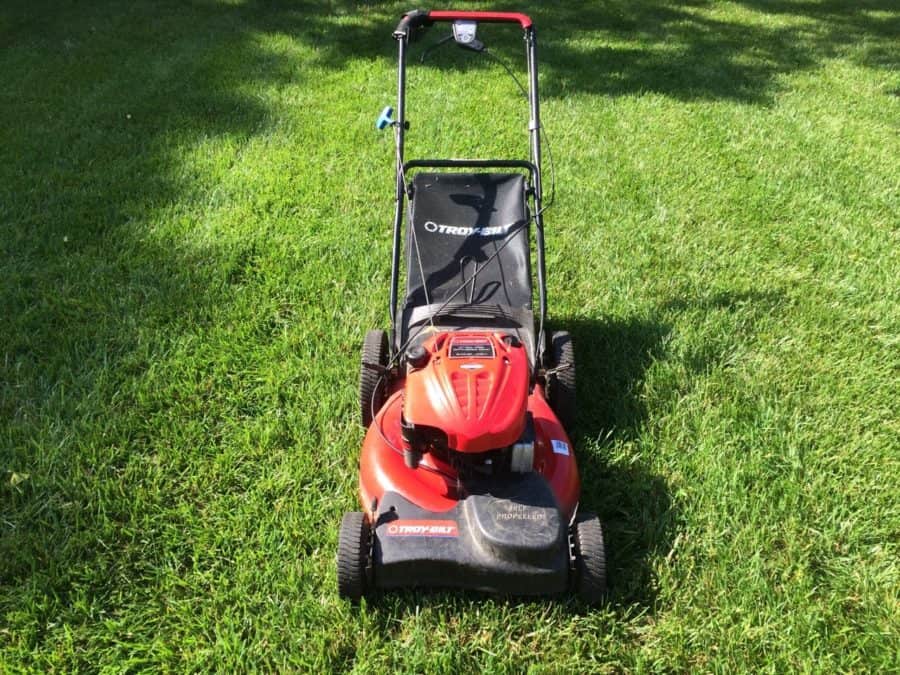
Again, this is a pretty easy call to make, because gas mower engines take a lot of maintenance, including changing spark plugs, fuel filters, oil and other components. They also have a lengthy start-up process that requires prepping, priming, and pulling to ignite the engine – which can take repeated tries with older mowers.
By comparison, electric mowers are much simpler. You drop the battery in the required slot, make sure the safety key is properly engaged, and push the start button. That’s it! You may need to buy a new battery in several years, but your biggest maintenance task is making sure the mower stays clean.
#5 Overall Costs: Same Sunk Cost But Gas Can Get Pricey
Gasoline and electric mowers tend to have similar costs when compared model to model. Spending $300 to $500, for example, will get you around the same quality of lawnmower no matter which fuel source you go with.
But you also have to consider ongoing maintenance. Gas mowers require you to buy more gas and oil at regular intervals, which are minor expenses but steady as long as you use that mower.
Electric mowers have no such ongoing expenses (the minimal electrical use is unlikely to make any significant dent in your bills). However, batteries do wear out and lose performance after time. After several years, you may need to spend $50 to $100 on a new battery pack to keep the mower running reliably.
#6 Weight: Electric Is Lighter But…
In general, electric mowers tend to be 10 to 30 pounds lighter than equivalent gas mowers. There are two important reasons for this.
- First, gas engines tend to weigh more than battery packs, especially when filled with gas – that’s just a structural fact.
- Second, the design of electric mowers makes it easier to use more plastic components. This ruggedized plastic can easily hold up to the elements, but it’s much lighter than the metal components more common on traditional gas mowers (we have seen a couple electric lawn mowers with metal components, but they relatively rare).
Lightweight mowers obviously have their advantages – for one thing, it makes pushing them a lot easier! However, a lighter mower is not always a good thing. Especially thick lawns present problems if a mower is too light.
If your grass grows very thick or your ground is pretty rough, a heavier mower may be better since it can provide more stability and a more even cut for your grass
#7 Safety
Gas and electric mowers both have safety features that prevent problems like the mower starting up during maintenance – safety key, fuel valves, and so on.
Gas mowers, however, do deal with more hazardous substances than electric mowers. A battery pack isn’t much danger unless it is smashed open. However, gasoline and oil can present safety issues on their own if mishandled, so extra care may be required here.
Related Articles:

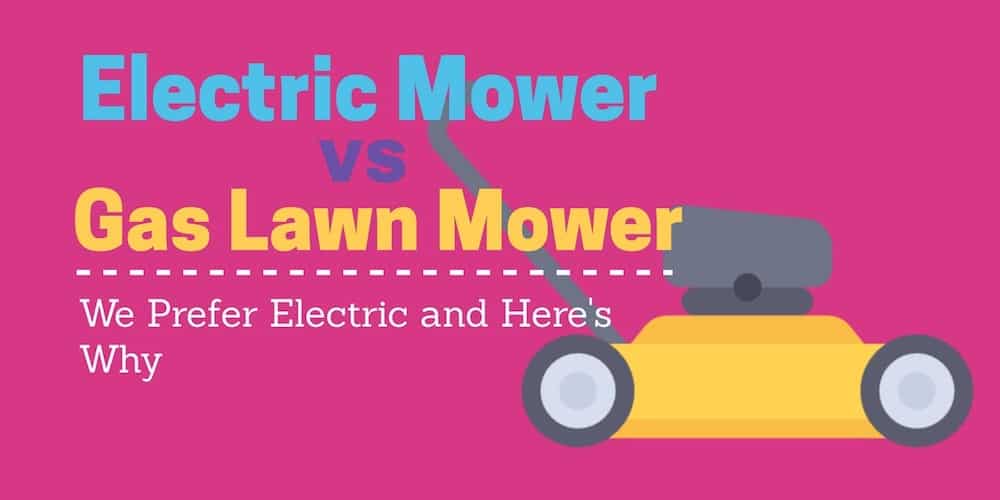













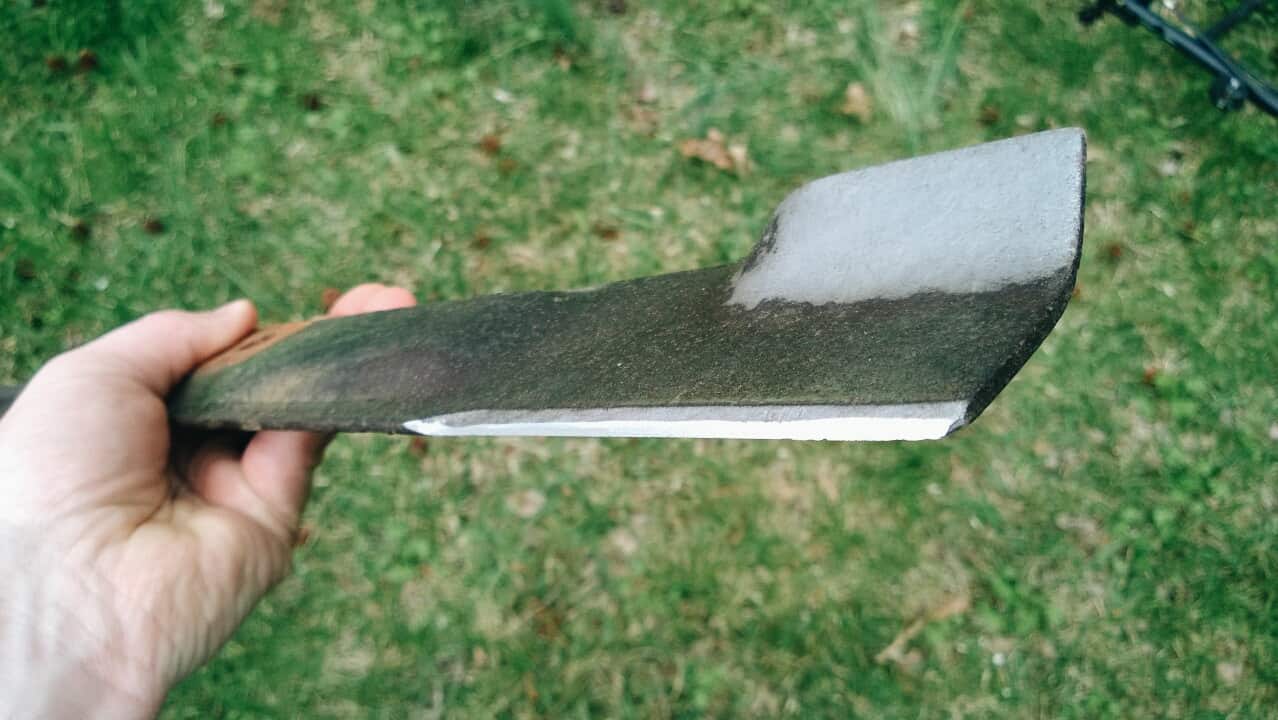

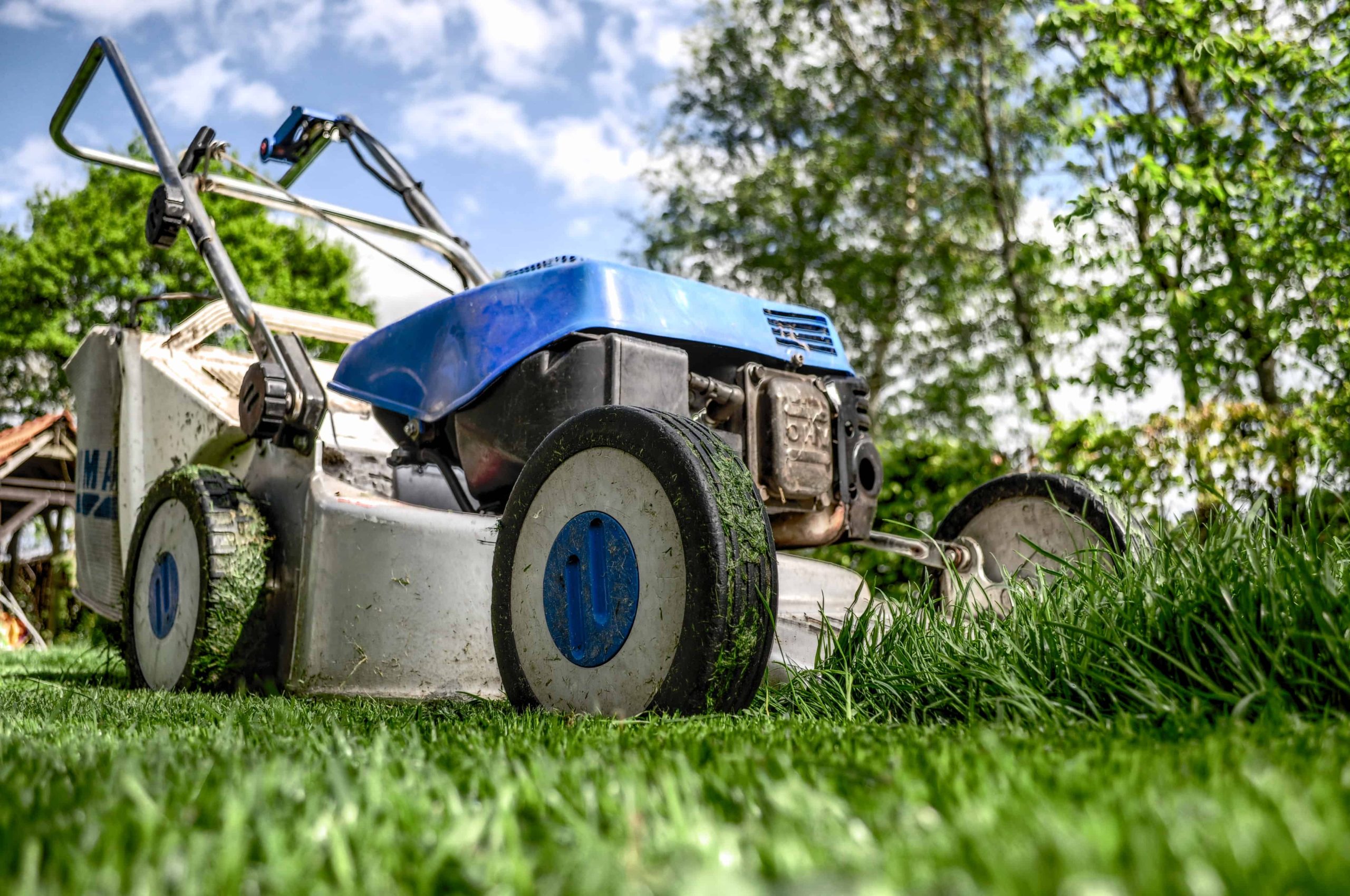
![Best Electric Lawn Mowers in [year] ([month] Reviews) 13 Best Electric Lawn Mowers in 2026 (January Reviews)](https://www.gadgetreview.dev/wp-content/uploads/gas-vs-electric-lawn-mower-750x383-1.jpg)
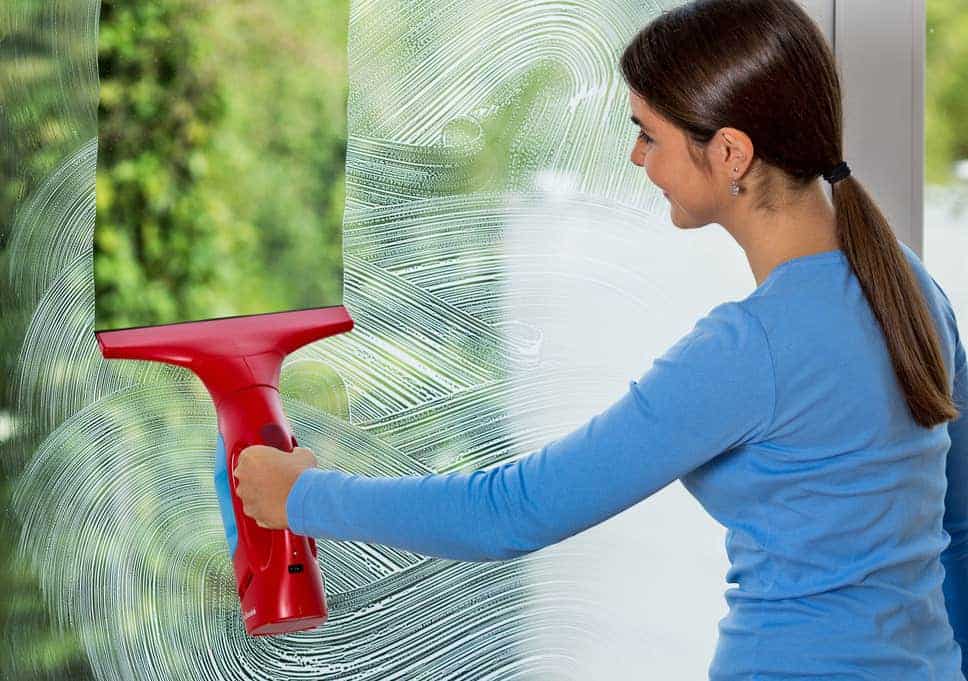

![4 Best Robotic Window Cleaners in [year] 16 4 Best Robotic Window Cleaners in 2026](https://www.gadgetreview.dev/wp-content/uploads/best-robotic-window-cleaners.jpg)
![7 Best Stainless Steel Cleaners in [year] 17 7 Best Stainless Steel Cleaners in 2026](https://www.gadgetreview.dev/wp-content/uploads/best-stainless-steel-cleaner.png)
![7 Best Portable Closets in [year] 18 7 Best Portable Closets in 2026](https://www.gadgetreview.dev/wp-content/uploads/best-portable-closet.jpg)
![7 Best Seedling Starter Trays in [year] 19 7 Best Seedling Starter Trays in 2026](https://www.gadgetreview.dev/wp-content/uploads/best-seedling-starter-trays.jpg)

![6 Best Speaker Shelfs to Enhance Your System in [year] 21 6 Best Speaker Shelfs to Enhance Your System in 2026](https://www.gadgetreview.dev/wp-content/uploads/best-speaker-shelf-to-enhance-your-system.jpg)
![7 Best Fire Pit Covers in [year] 22 7 Best Fire Pit Covers in 2026](https://www.gadgetreview.dev/wp-content/uploads/best-fire-pit-covers.jpg)
![7 Best Magnetic Screen Doors in [year] 23 7 Best Magnetic Screen Doors in 2026](https://www.gadgetreview.dev/wp-content/uploads/best-magnetic-screen-door.jpg)
![7 Best Tiller and Cultivator in [year] 24 7 Best Tiller and Cultivator in 2026](https://www.gadgetreview.dev/wp-content/uploads/best-iller-and-cultivator.jpg)
![7 Best Soil pH Meters in [year] 25 7 Best Soil pH Meters in 2026](https://www.gadgetreview.dev/wp-content/uploads/best-soil-meter.jpg)
![7 Best Grow Light For Indoor Plants in [year] 26 7 Best Grow Light For Indoor Plants in 2026](https://www.gadgetreview.dev/wp-content/uploads/best-grow-light-for-indoor-plants.jpg)
![7 Best Plant Stands in [year] 27 7 Best Plant Stands in 2026](https://www.gadgetreview.dev/wp-content/uploads/best-plant-stand.jpg)

![7 Best Floor Sweepers in [year] 29 7 Best Floor Sweepers in 2026](https://www.gadgetreview.dev/wp-content/uploads/best-floor-and-carpet-sweeper.jpg)
![7 Best Door Stops in [year] 30 7 Best Door Stops in 2026](https://www.gadgetreview.dev/wp-content/uploads/best-door-stop.jpg)
![7 Best Dusters for Your Blinds and Ceiling Fans in [year] 31 7 Best Dusters for Your Blinds and Ceiling Fans in 2026](https://www.gadgetreview.dev/wp-content/uploads/best-duster-for-your-blinds-and-ceiling-fan.jpg)
![7 Best Patio Furniture Covers in [year] 32 7 Best Patio Furniture Covers in 2026](https://www.gadgetreview.dev/wp-content/uploads/patio-furniture-covers.jpg)

